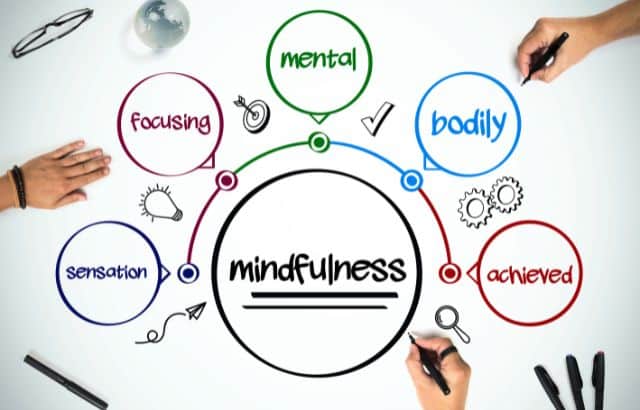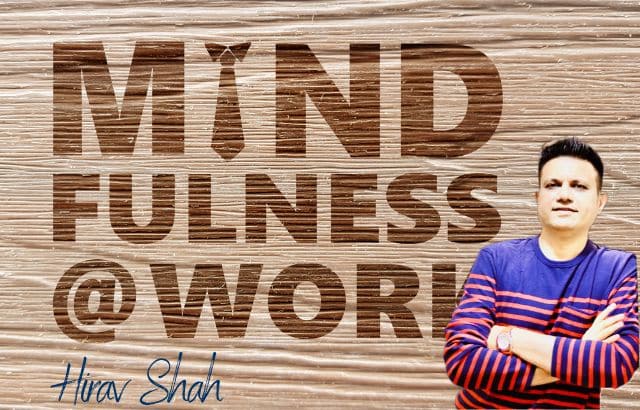Don’t try to fix your memory, attention, anxiety, work pressure etc… Work on your mindfulness.
It’s 2024. And if you are at work, there is a rush. There is chaos. There is noise. There is cacophony. There is competition.
Would you try something new at work if it meant lower stress levels and a better corporate culture?
Yes, right…
Mindfulness has been shown to offer these benefits, which is why more and more companies are starting to notice and think about how mindfulness can be practiced at work.
Hirav Shah, India’s Premier Business Transformation Expert, outlines, below, how to begin practicing mindfulness at work…
Table of Contents
1. Pay Attention
Throughout the day, you do many things such as sitting at your desks, typing emails, meeting with colleagues etc. Often you are so preoccupied with what you have to get done, that you go into automatic piloting, and are stuck in your heads/thoughts for most of the day. For example, you might be in a meeting, but thinking about a deadline you have to meet or a conversation you have had earlier with an office colleague.
Now it’s time to start practicing mindfulness. And for that you have to pay attention…say every 4 hours to start with, you stop, notice where your mind has been and bring it back to your senses.
So, if you are sitting at your desk, you stop and notice what you are thinking about and then get your attention redirected to your body-mass in the chair, your breathing or the sensations of your feet touching the floor.
Your mind will want to keep thinking, even though you are redirecting your attention to your senses, so just notice every time your attention strays from where you are trying to direct it (feet, breath etc) and gently bring your attention back to your senses, over and over again. Keep doing this for two mins at one go. Then slowly increase from two to three or four minutes as long as you are comfortable and at absolute ease.
It’s difficult, but not impossible. Do pay a little attention. At least try. It works. It’s magical. But, it needs a little patience.
2. Don’t Give Yourself A Hard Time
Small wins every day. Even if you don’t win, it’s okay. There is always a next time. So, don’t hurt yourself for nothing.
Yes, be at an absolute ease. It is very important not to give yourself a hard time when you notice that you have failed to keep your attention on the target, just pat yourself on your back for noticing that, your mind had wandered into thinking mode, because “this” is a moment of mindfulness, and hence redirect it back to the target. Try !!
3. Consistency & Practice-Consistency is the key. Practice is the key.

By practicing this consistently throughout the day, you are giving the thinking/doing part of your brain a rest and a chance to refresh and recharge. Over time, you will notice that you are able to focus more and will feel more energized by the end of the day.
The results however will depend on how often you practice this and how consistently you do it.
Final Thoughts

In the modern scientific literature, mindfulness has been shown to enhance short-term memory, awareness, and consciousness and the ability to perform complex cognitive tasks, and could also serve to alleviate stress and anxiety, potentially leading to better relationships.
Don’t try to fix your memory, attention, anxiety, work pressure etc…Work on your mindfulness.
At all levels …things will automatically be taken care of-Concludes Hirav Shah, Popular Business Enhancement Leader and Business Astrologer™.












